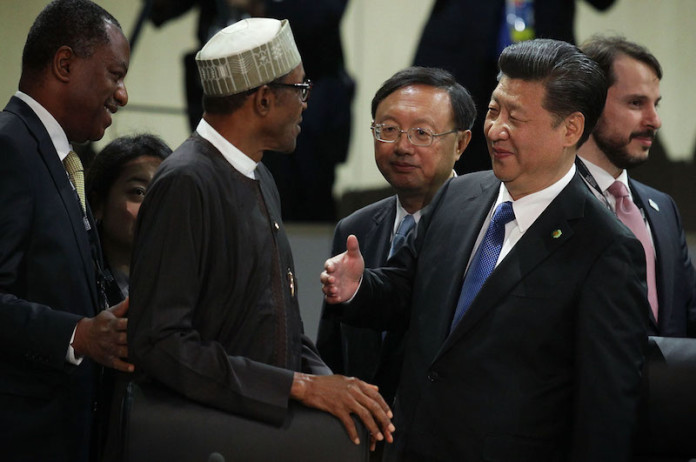
The G20 Summit recently held in Buenos Aires, Argentina, from November 30 toDecember 1 was the 13th meeting of the G20 and first ever to be hosted in South America.
The summit brought together the world’s leading industrialised and emerging economies.
The G20 is made up of 19 countries and the European Union. The group works toward the promotion of international financial stability and, more generally, key issues as regards the global economy.
The members are Argentina, Australia, Brazil, Canada, China, France, Germany, India, Indonesia, Italy, Japan, Mexico, Russia, Saudi Arabia, South Africa, South Korea, Turkey, United Kingdom, United States and the European Union.
Countries invited as observers this year were Chile, Jamaica, Netherlands, Rwanda, Singapore and Spain.
Together, the G20 economies are said to account for about 90 percent of the Gross World Product (GWP), 80 percent of world trade and two thirds of the world ‘s population and an estimate of half of the world’s land area.
Leaders of the Group declared that the G20 would replace the G8 as the main economic council of wealthy nations.
The three principal agenda for the Summit were the future of work, infrastructure for development and a sustainable food future.
These topics are key areas of interest for Africa. Sadly, the only member state from the continent is South Africa. Nigeria did not even make the guest list.
Previously, about 17 years ago, participation at the G20 summit was limited to finance ministers and central bank governors of member states, but that has changed and the heads of state and government are now the leaders of their country’s delegations. That is a measure of how important the summit has become.
It is apparent that Nigeria was not considered worthy to be on the same boat as the listed nations.
This development is a worrisome one. For a country with the largest economy on the continent and prides itself as the giant of Africa to be left out of such a summit of such global importance speaks volumes about how the country has fallen off the pace in terms of the indices used to gauge human development.
It appears that while Nigeria is unarguably the most populous African nation by a distance, the country’s level of industrial development has not been up to scratch. It has simply not been able to take advantage of its massive youthful population to drive productivity.
Despite declarations of intent, successive governments had failed to diversify its economy in order to engage productively and profitably with the rest of the world. instead they have run a mono product economy almost entirely dependent on crude oil receipts.
Rwanda deserved to make the guest list as the country has within a short period, even after the tragedy of the 1994 genocide that devastated the country, showed itself worthy to be tagged as one of the few industrialised nations in Africa.
Since 2003, its GDP, according to the CIA Factbook, rebounded with an annual average growth of six percent to eight percent. And 2015 saw 39 percent of the population living below poverty line according to government statistics when compared to 57 percent in 2006. The industrial production growth rate was at 4.2 percent in 2017 and unemployment rate at 2.7 percent in 2014, and the country continues to forge ahead.
Nigeria’s statistics in various parameters of human capital development are not good stories to tell. From becoming the poverty capital of the world to being one of the three most terrorised nations, report after report place the country at the bottom of things in terms of socio-economic development.
For a country of 180 million people to have about two-thirds of its population living in extreme poverty despite possessing abundant human and natural resources calls for serious soul searching among its leaders, past and present.
The country’s industrial production growth rate was said to be a miserly 2.2 percent in 2017, ranking 126th globally, and its unemployment rate of 16.5 percent in 2017 put Nigeria at 178th in the world.
It is our opinion that Nigeria cannot afford to head down the slopes while serious nations are seeking ways to shore up their already robust economies.
First, she has to shed itself of the dirty image as one of the most corrupt countries in the world. Investors and industrialists which the nation craves do not like to operate in such environment.
It is the reason nothing works in the country. It is the reason our refineries are not working. It is the reason Ajaokuta Steel has remained stillborn. It is the reason public services are stagnant. It is the reason the war against terror is dragging.
Nigeria needs not grieve over the G20 Summit snub, rather it should see it as a wake-up call to diversify its resource base if it wants to play among big boys of the world’s economy.
END

Be the first to comment